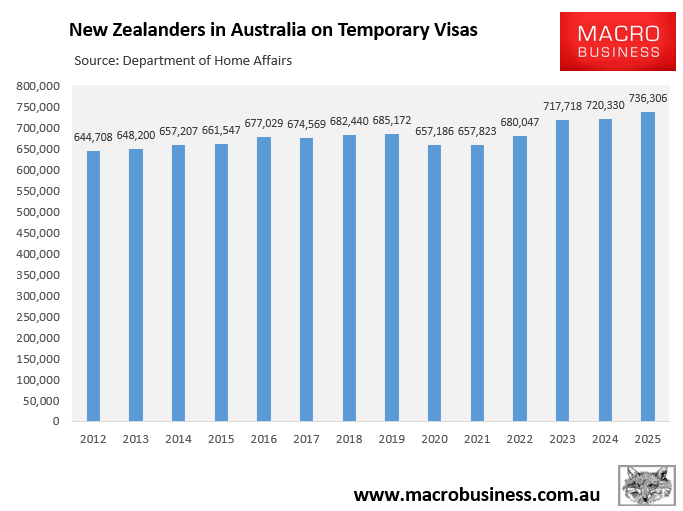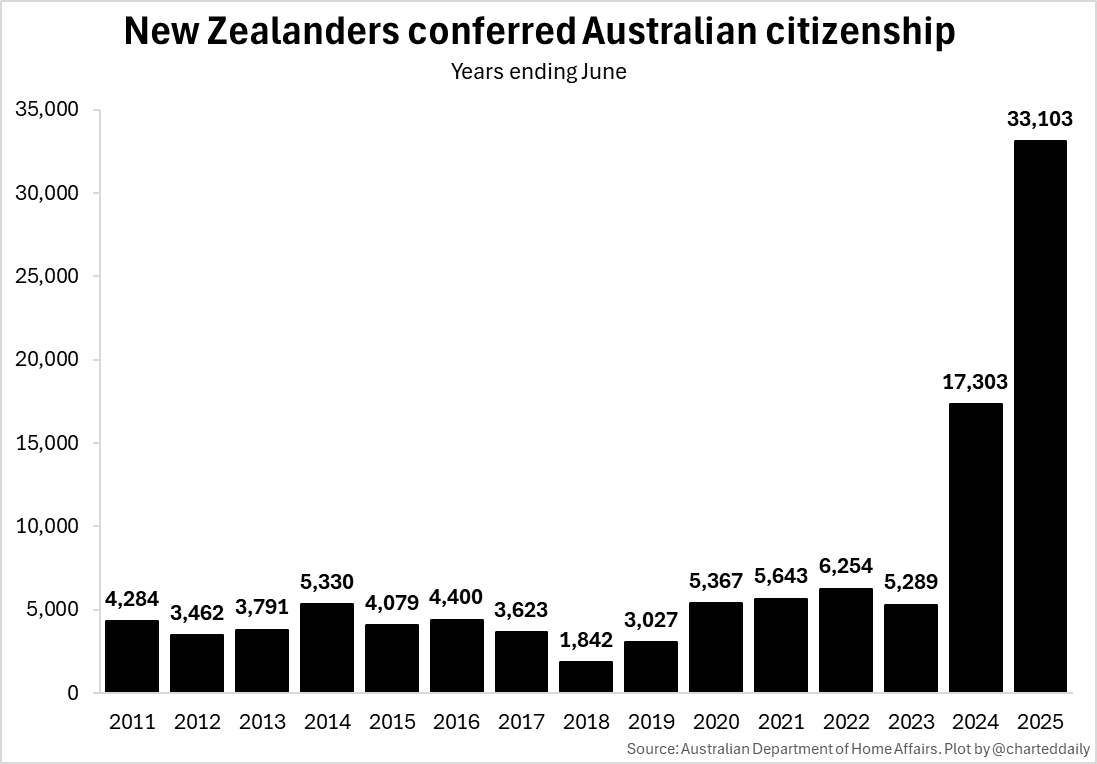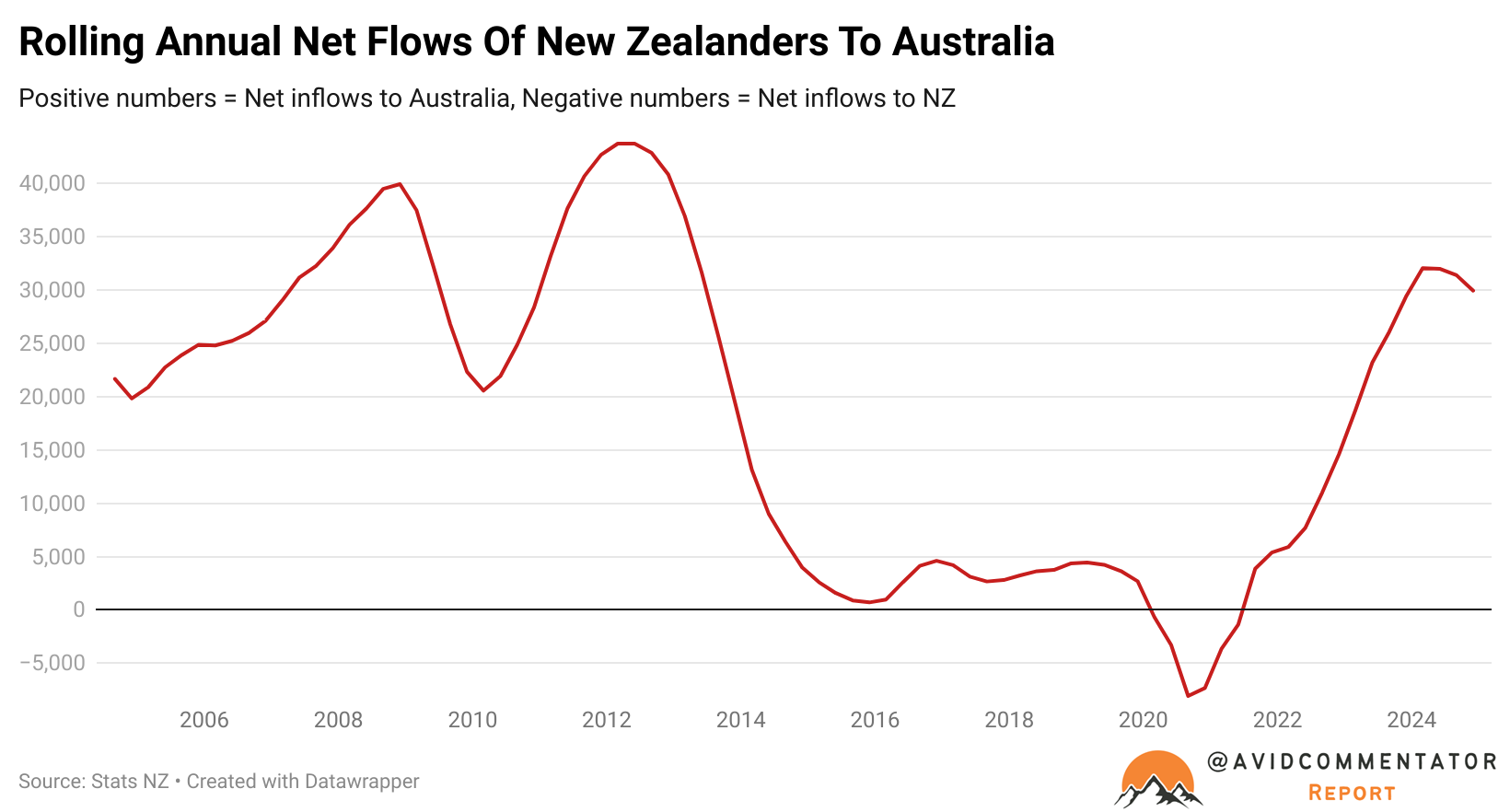New Zealand turns migration ‘stepping stone’ to Australia
Under a series of agreements reached between the Australian and New Zealand governments, Kiwis can relocate to Australia and reside there indefinitely using the Special Category Visa (SCV).
The SCV is automatically granted to New Zealanders upon admission, provided they meet character and health criteria.
The SCV allows Kiwis to live, work, and study indefinitely in Australia, but it does not grant permanent residency or full citizenship rights (e.g., voting, access to certain social services).
According to the Department of Home Affairs, there were a record 736,306 Kiwis living in Australia temporarily on SCVs as of Q3 2025:

From 1 July 2023, New Zealand citizens who have lived in Australia for 4 years or more on a SCV were permitted to apply directly for Australian citizenship by conferral, without first becoming a permanent resident. Other nationalities now occupy these places, effectively increasing the size of Australia’s permanent migrant program.
This policy change led to a surge in the number of New Zealanders gaining Australian citizenship, rising more than threefold over the year to June 2024 and more than sixfold over the year to June 2025:

Overall net migration flows from New Zealand to Australia are tracking around their highest level in more than a decade:

The New Zealand government recently announced a series of reforms aimed at boosting migration levels.
In June, the government unveiled a new ‘Parent Boost’ visa, which allows migrants to bring their parents to New Zealand for up to ten years.
The government also introduced a new foreign investor visa to attract wealthy individuals and boost economic growth.
In an effort to increase enrolments, the New Zealand National government increased the number of permitted hours that international students can work during the academic semester from 20 to 25 hours per week.
The government also announced a loosening of work-to-residency visa settings after lobbying from employers.
The New Zealand government has, therefore, lowered the quality bar to boost headline GDP growth and support the housing market.
Once these low-skilled migrants gain New Zealand citizenship, they will then be permitted to jump the pond to Australia, where they can live and work permanently.
Indeed, New Zealand First leader Winston Peters warned that New Zealand risks becoming a migration “stepping stone” to Australia, whereby the country trains and upskills people, then watches them cross the Tasman.
“Almost half of our citizens already applying for Australian citizenship last year were not born here”, Peters said.
“New Zealand is being used as a stepping stone into Australia. We take them in, train them, up-skill them, look after their families, and then they emigrate. How is this an effective immigration policy?”
Peters’ warning came as Stuff.co.nz reported that “in the two years from July 2023, 92,000 New Zealanders had applied for the Special Category Visa. Of those 92,000 New Zealand citizens, 48% of them were not born in New Zealand”.
By making it easier to gain New Zealand citizenship, the New Zealand government has made it easier for migrants to use New Zealand as a backdoor to live permanently in Australia.
The Albanese government has also increased incentives to use New Zealand as a stepping stone to Australia by easing the requirements for gaining Australian citizenship.
